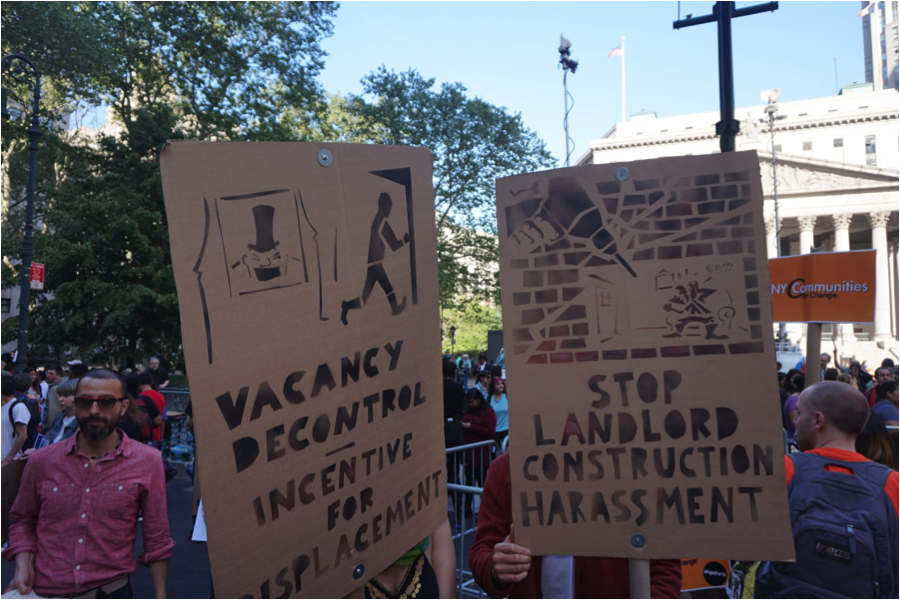Reforms to rent control are finally a topic of hot debate — but not in San Francisco.
Last year Public Press reporter Harry Gibbons wrote about the city’s curious rental laws, which somewhat arbitrarily help some tenants by limiting yearly rent increases but not others, depending on when the building was put up.
Since then, not much has been done to revisit the issue, even though local leaders have been grasping for ideas to ease the housing crisis here, such as a housing bond of at least $250 million, and additional taxes on home sales to fund affordable housing programs.
Reform ideas on the docket in the New York State Legislature put the lack of attention to San Francisco’s rental laws, which have helped hundreds of city residents weather skyrocketing rental increases, in stark contrast.
New York’s rent laws expired on June 15 but as of June 18, the Republican-led Senate and Democratic-led Assembly had yet to come to an agreement on how to move forward. Senate Republicans voted for an eight-year renewal of the current laws, while Assembly Democrats continued to fight for stronger regulations. They were still hoping to reach an agreement that would get rid of vacancy decontrol, and were prepared to continue talks until that agreement was reached, wrote Capital New York reporter Jimmy Veilkind. Neither side seems willing to concede any ground, and current rent laws have now been extended until June 23 allowing talks to continue.
New York City Mayor Bill de Blasio has been vocal in his support of eliminating vacancy decontrol, and expressed his frustration with the capital at a press conference on Wednesday.
Like the expired New York laws, California’s rules allow for vacancy decontrol, which lets landlords raise rents on regulated units to market prices once tenants move out. But more than 35,000 apartments have been deregulated since 2011, de Blasio said.
San Francisco’s rental laws could use a little sprucing up, say both critics and defenders of the system. Vacancy decontrol is allowed under the 1995 state Costa-Hawkins Rental Housing Act. Changing that would prevent landlords in San Francisco, one of the few rent controlled cities in the state, from boosting rents to the stratosphere by pressuring tenants to move out, housing activists say.
De Blasio and supporters hope that by eliminating New York’s vacancy decontrol, bad actor landlords will have little motivation to harass tenants to leave — and that if tenants do voluntarily leave, their units would remain affordable.
If the Democrats and de Blasio get their way, New York’s strengthened rent laws would also end landlords’ ability to increase rent after a building or apartment improvement project. Instead of permanently raised rent, the costs of improvements would be spread over seven to 10 years, depending on the size of the units, and rent would return to normal once the project was paid off.
San Francisco’s local laws already prohibit the costs of improvements from being tacked on to base rents or added to annual allowable rent increases. For buildings with six units or more, tenants pay back the landlord over seven to 16 years. For buildings with five or fewer units, the payback period is between 10 and 20 years. Though that sounds like a long time, tenants may be paying for projects they did not necessarily ask for or need.
New York City faces an affordability crisis similar to San Francisco’s, as income inequality increases and longtime residents are being forced out.
Last year the Public Press assembled a handy comparison chart listing proposals floated last year by de Blasio and San Francisco Mayor Ed Lee.
For the full list of solution ideas in the summer 2014 edition of the paper, see sfpublicpress.org/housingsolutions.








